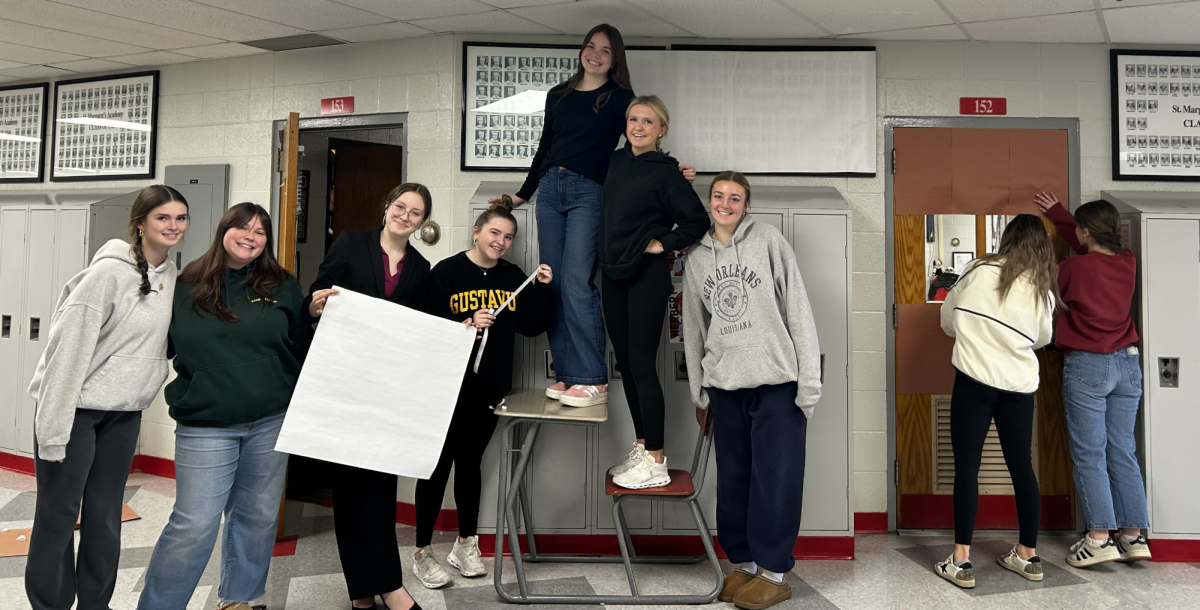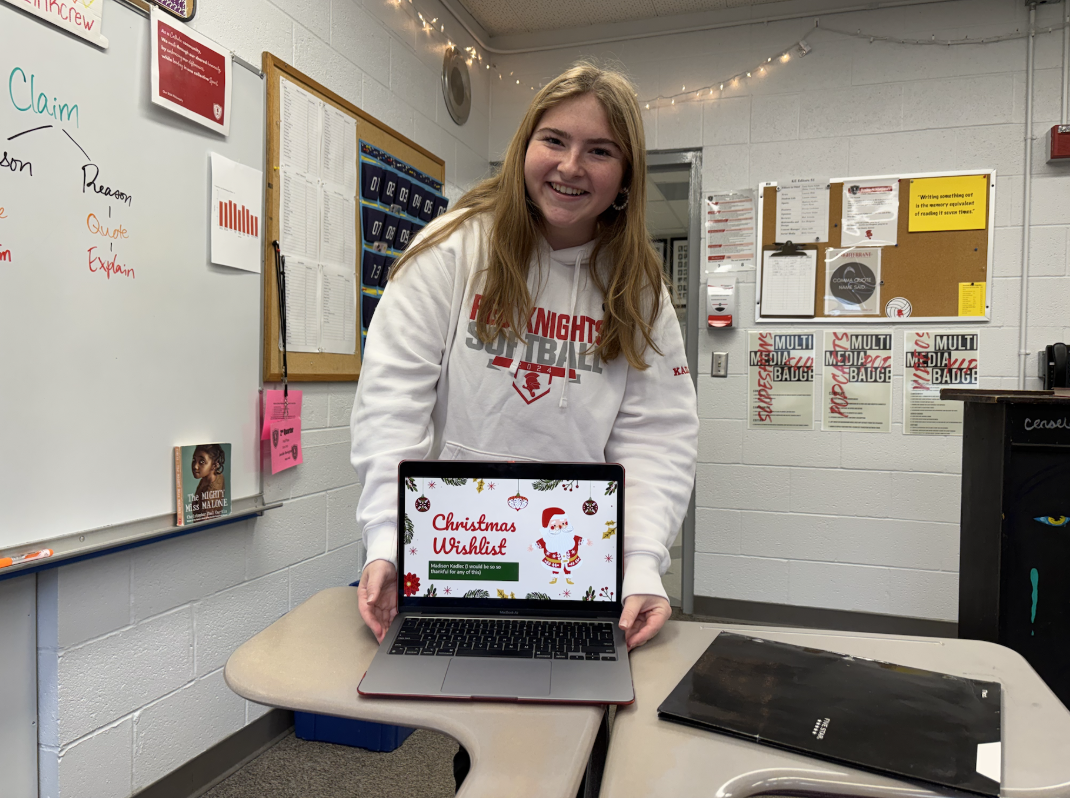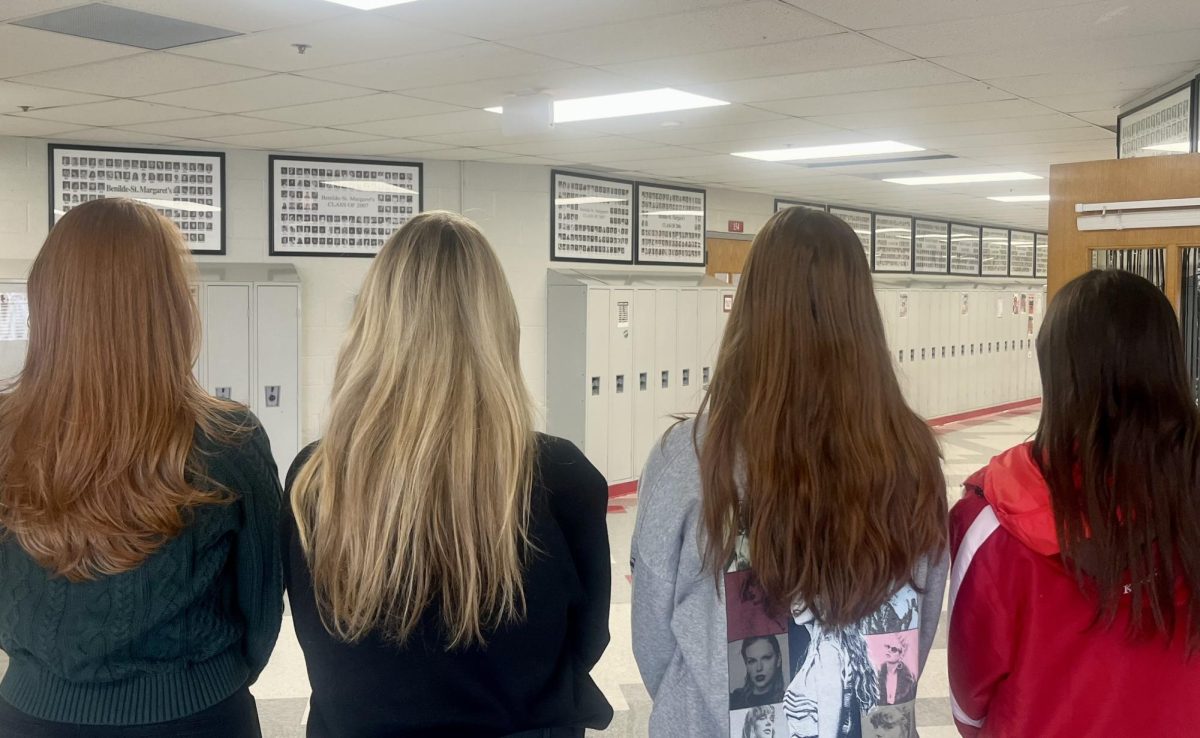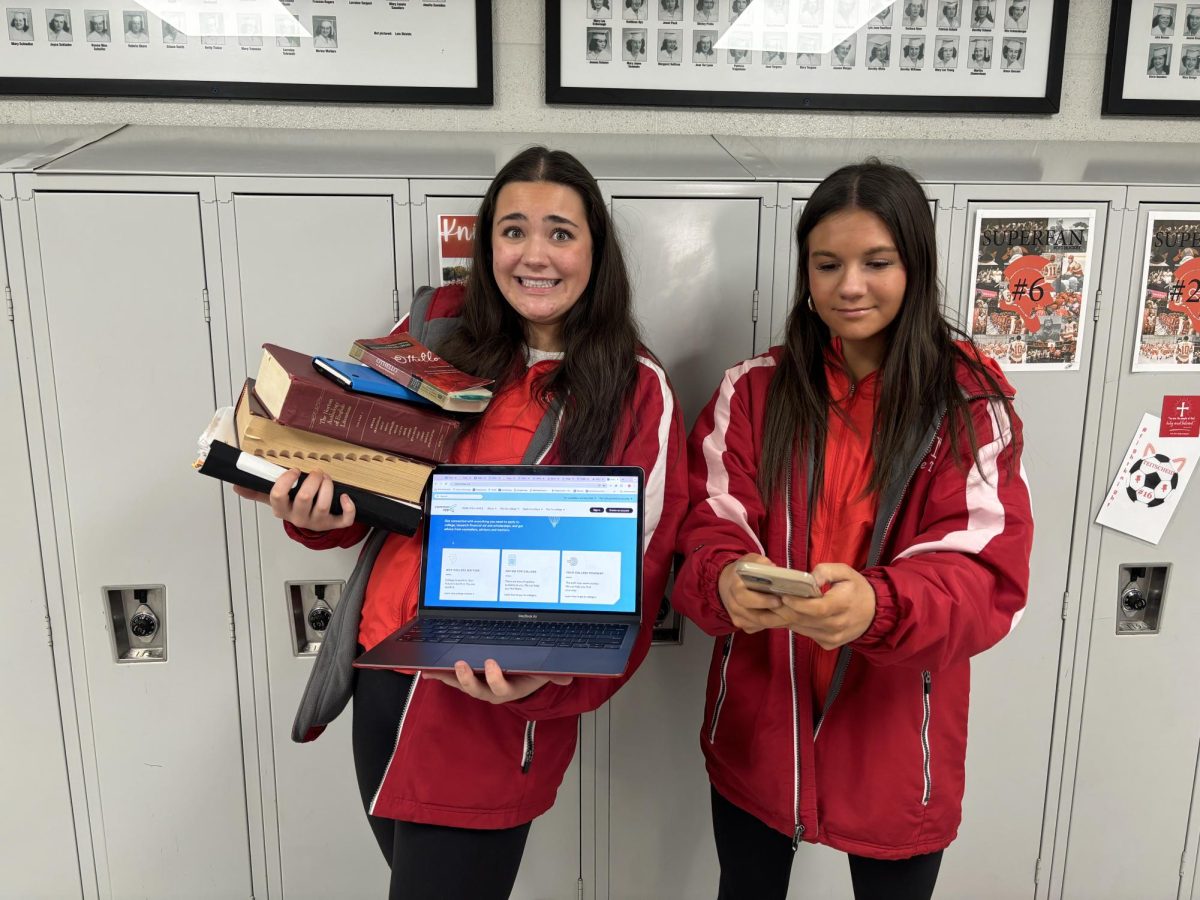Hockey is a fast-paced sport that lives off choices that need to be made in milliseconds. It’s a sport where one wrong choice can be the difference between success and failure. Sophomores Jack Glover and Ryan Collins were given the opportunity to play in the USA National Team Development Program (NTDP), based in Ann Arbor, Michigan. This decision would be one that would not only affect their careers in hockey, but one that could decide the rest of their lives.
The NTDP, which was started in 1996, is an advanced program which selects the top hockey players in the country and fortifies their development, focusing on key skills such as skating, fitness, and teamwork.
The NTDP plays in international tournaments and against several NCAA teams, but, for the most part, plays against teams in the United States Hockey League (USHL). The USHL is the only Tier I junior hockey league in the United States. Junior hockey comprises of players age 16-20.
Some players leave their high schools to play, while others finish their prep careers prior to playing juniors. They might do this in order to get a college scholarship or to get some extra playing time before jumping straight into college hockey.
But players leaving for juniors has become a controversial topic in the past decade, especially in Minnesota where high school programs carry more tradition than anywhere else in the country. An example of this is the website Minnesota Hockey Hub’s list of the top 100 players in Minnesota high school hockey history. In the site’s countdown, it did not include players who did not complete their senior year, echoing the stance of many who oppose players leaving early.
The case for leaving
The NTDP has produced a large amount of NHL talent. Since its inception, 41 NTDP players have been drafted in the first round of the NHL Entry Draft, and over 180 overall. Alums of the program include stars such as Phil Kessel, Patrick Kane, Ryan Kesler, and Jack Johnson.
For Glover, the chance the NTDP gives him to play at hockey’s highest level was attractive. “I think its history and the type of players it’s produced in the past has kind of put it on a pedestal to the NHL Teams,” said Glover. “The NHL values it and drafts players from it. They know the discipline theses players have.”
The opportunity to participate in the program, which had been available for both players since the beginning of the high school season, was not an easy one to accept. “It was a very difficult decision. I have a lot of friends here and it’s great group of guys to play with,” said Collins.
However, Collins saw the developmental league as the best opportunity for him to succeed both in the present and the future. “The opportunity to represent the country and the development [I would receive] playing in the league against the competition I felt was the best way to grow as a player.”
For Glover, the decision was a bit easier. The opportunity to play for such an illustrious program and improve his overall game had been a dream for him. “It was one of the easiest decisions that I’ve made,” said Glover.
The chance to represent your country is a sentiment that Glover echoed. “The thing that goes with playing for your country, it’s just something that I couldn’t pass up,” said Glover.
The NTDP will grant both players the chance to focus on the sport that they love to play. “The competition is a lot different, a lot faster, a lot stronger than high school hockey. There’s more emphasis on strength training, and we get around the clock focus. We get our own weight room and everything we’d ever need to succeed,” said Glover.
“I think the opportunity to play against tougher and older competition, along with seeing international play [will enhance my game],” said Collins. “Then with just the day-to-day training on and off the ice that you get there, I think that will help me develop as a player over the next few years.”
Winning the state championship this year might have helped make this decision easier for Glover. “You’ve accomplished what every kid in Minnesota’s goal is to accomplish in terms of winning the state tournament. I never thought I would be playing one year in high school and winning the state tournament that year. So it was really cool, but it definitely made it a little easier knowing that I had accomplished everything that I could,” said Glover.
However, for Collins, the decision wouldn’t have changed regardless of the season’s outcome. “I don’t think it played a whole lot. It was a great accomplishment, and it was great to go out on top, but it ultimately came down to what was best for me,” said Collins.
Although their decisions were independent, leaving home after sophomore year will be easier with a friend coming along. “Going there with him will make it easier, he’s the only other kid from Minnesota. I know all the other kids, but having someone you’re close to is definitely going to make the transition a lot easier,” said Glover.
The case for the staying
Leaving for juniors isn’t the only way to play in the NCAA or NHL though. Last season, ten players were drafted straight out of Minnesota high schools. In 2010, two players went in the first round; Blaine’s Nick Bjugstad and Warroad’s Brock Nelson. They join a long list of homegrown NHL stars that includes David Backes, T.J. Oshie, Matt Cullen, and Ryan McDonagh.
The NTDP has produced a large amount of NHL talent. However, BSM boys’ hockey coach Mr. Ken Pauly believes league has its faults. “There’s an awful lot of data out there which shows it’s not working. I know that it’s a mixed bag. For some kids that left, it worked out, but there’s just as many it hasn’t worked out for, and I think you’re sacrificing an awful lot,” said Mr. Pauly.
Even with the strength of the program, some still doubt its effectiveness. Mr. Pauly is one of those who questions the effectiveness of the program. “It’s a highly controversial program,” said Mr. Pauly. “Truth be told, it’s an annually three to four million dollar waste of money. Its record for success can’t be demonstrated.”
Mr. Pauly also questions how much development there will actually be, citing legendary olympic coach Herb Brooks’ words. “If USA hockey really wanted to do something for development, they wouldn’t take the top 20 kids or top 40, they’d take the next 40 or the next 20 and develop them. If you just take what you perceive as the very best and then say ‘Oh gee, we built these NHL guys’ well, those guys were going to go somewhere anyways,” said Mr. Pauly.
The program trying to lure players away is nothing new to BSM. After leading BSM to the 1999 class A championship in his junior season, superstar Troy Riddle left to play for the Des Moines Buccaneers in the USHL. During his sophomore year, senior forward Christian Horn was offered a spot on the Ann Arbor team, but turned it down to stay at BSM and contend for a state title, a dream of his.
“I felt Benilde had a lot of the perks that the program did. There is something special about representing your country and everything, but I ultimately wanted to play in the state tournament, win a state championship and be close to home,” said Horn.
The draw of being able to play with your friends and for your school is enough to keep a lot of Minnesotans at home. “For Minnesota, it’s completely different. My decision would’ve been a lot easier if I’d played for a team out in Michigan or somewhere else, because they don’t really play high school hockey,” said Horn. “They play AAA hockey, with a bunch of different kids that they know for six months out of the year and that’s about it. They’re not close to any of them. So I think that decision would’ve been a lot easier.”
After BSM junior Grant Besse scored five goals in the state championship game this past March, many speculated that he would leave to play juniors. In an early April interview with the Star-Tribune, Besse declared that he would be back in a red sweater next season, citing loyalty and the Red Knights strengthened schedule as reasons he is staying.
Although the boys’ hockey team will be losing two of its most promising defensemen, Mr. Pauly remains confident in his team’s strength. “We’ll be fine without them. We’re one of the top programs in the state, and we have been for quite some time. We’ll continue to be so with or without them,” said Mr Pauly.
“My primary concerns when guys do this is that it seems to me you’re giving up an awful lot. I believe in a complete high school experience and being with your community, with your school, and graduating and all that. There’s no question, there’s some tremendous opportunities there for them, there’s no debating that. In terms of their long term development, there’s a great debate there,” said Mr. Pauly.










































Mick Hawkins • May 11, 2012 at 10:31 pm
Interesting article.
I remember kids over the years that have left BSM to go to Ann Arbor.
All of the already successful kids remained successful.
All, and I do mean all, of the marginal kids remained at best marginal. Some even went backwards as maturing adolescents.
It seems to me that the high school experience with all that involves (continued guidance from parents, perhaps a relationship, certainly the energy of a comprehensive high school environment) are too important to forfeit.
Go Red Knights!
M. Hawkins